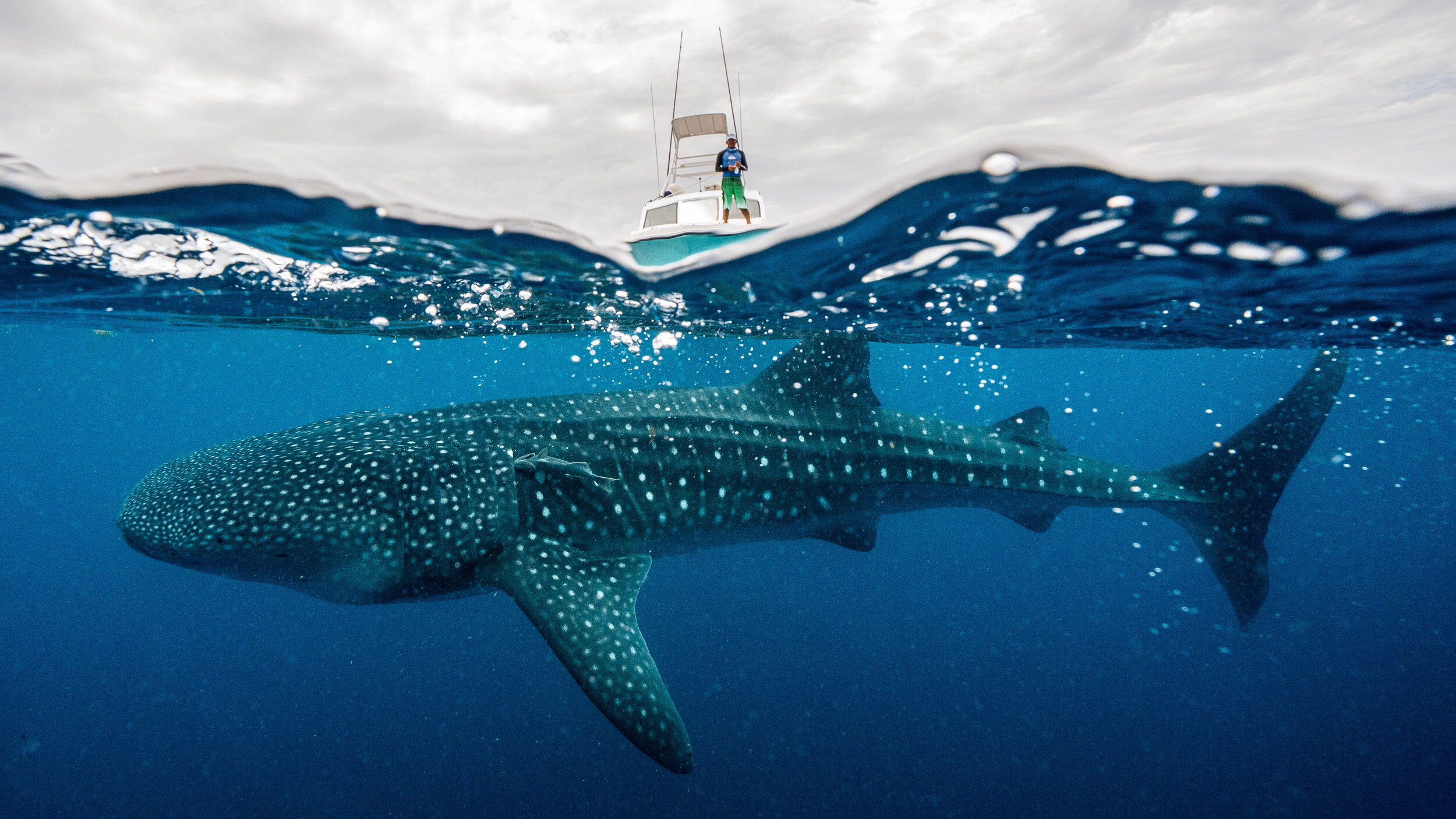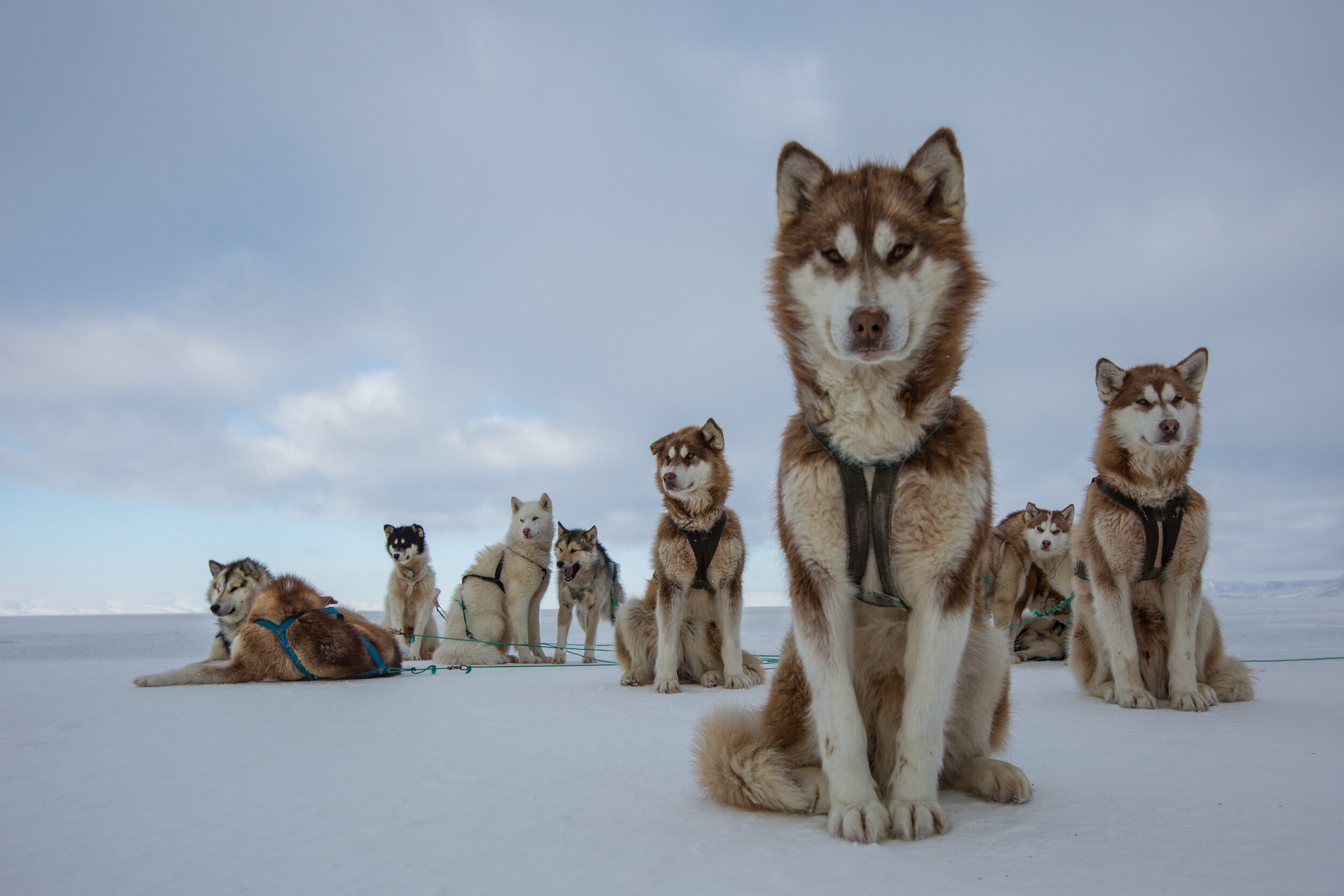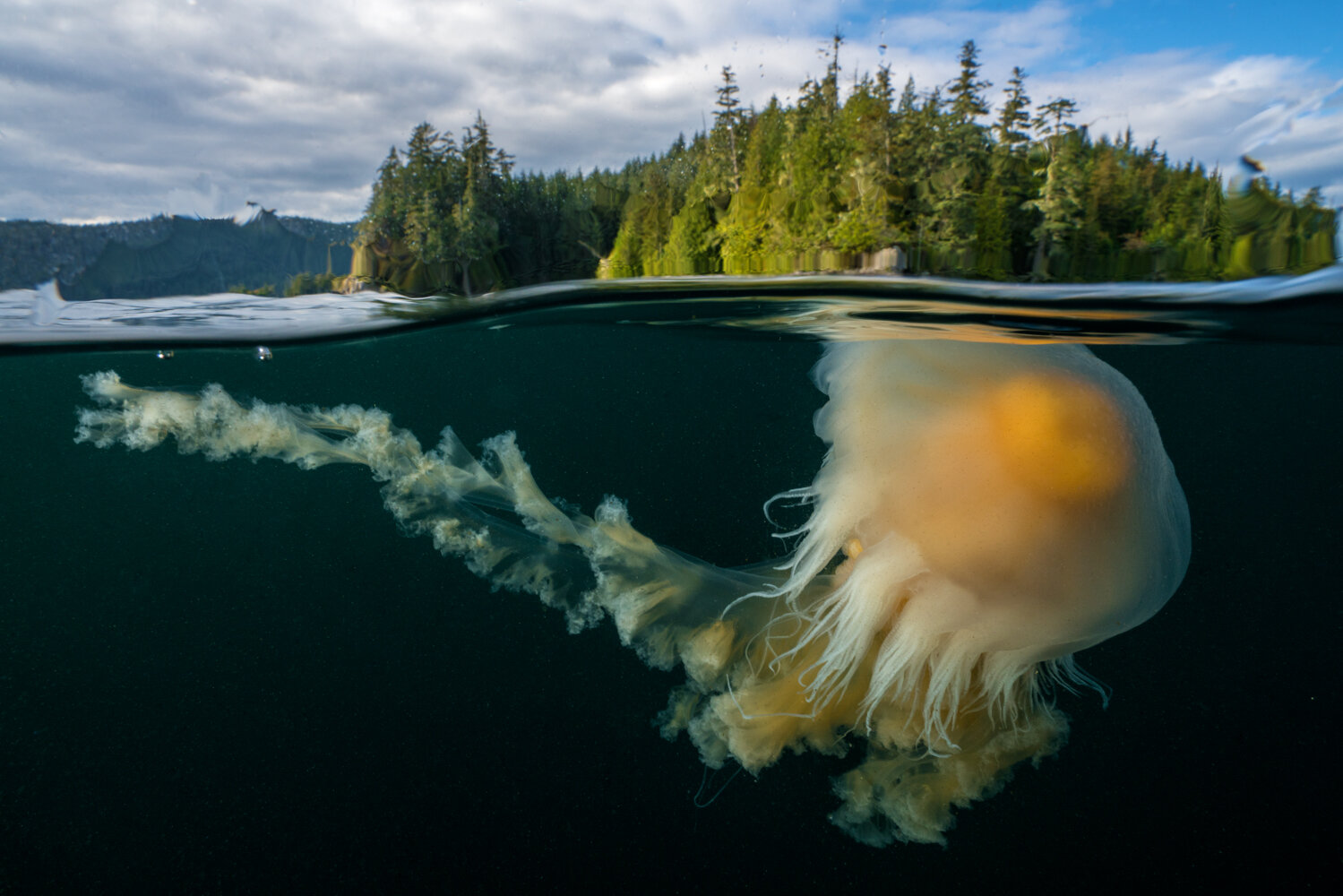Image by Anna Heupel
CONSERVATION PHOTOGRAPHER CRISTINA MITTERMEIER ON PRACTICING STORYTELLING, PHOTOGRAPHY AND THE PANDEMIC
By Christine Alexiou
Cristina Mittermeier is one of the most influential conservation photographers in the world, but her first love didn't involve a camera. Cristina's passion for the natural world, both above and below the surface, began in childhood and led to her career as a marine biologist, working in the Gulf of California and the Yucatan Peninsula in her native Mexico.
After realizing the power of photography to spark interest in conservation, Cristina picked up a camera to share stories from the farthest corners of the Earth. Today, she's a National Geographic contributing photographer, a Sony Artisan of Imagery, and the Co-Founder and Managing Director of the ocean conservation non-profit Sea Legacy. Known for her sensory storytelling, Cristina is the first female photographer to reach one million followers on Instagram and the editor of over 25 coffee table books on conservation issues.
Cristina sat down with Photographers Without Borders (PWB) Founder Danielle Da Silva as part of the ongoing “Storytelling for Change” webinar series. Below are edited excerpts from the discussion, which dove into the secrets of impactful storytelling, indigenous wisdom, biodiversity, lessons of the global pandemic and following your passions.
Danielle Da Silva: Cristina, you're one of the biggest change-makers I know. No problem seems too big for you. How do you find the energy to tackle these problems?
Cristina Mittermeier: I share a network of friends and acquaintances that I've made throughout the years – people like you. Paying attention to the people around us is really important. But when I work with passionate people, it fills me with energy. I can't wait to get up in the morning and get out there.
I’m also a mom with three kids, and I think about the planet we live in today. Yesterday, I looked out the window and saw a gray whale feeding right out my window. I would love for my children to know there are going to be whales when they're older. That we're going to not have to worry about an apocalyptic future. So that's where I get my energy from – there's no choice.
Images by Cristina Mittermeier
Da Silva: What's most extraordinary about you is that you're always at the leading edge of stories pushing for change. Can you tell us about what makes a good story for you and why storytelling is so important?
Mittermeier: We are all born with the ability to tell stories. Somehow when we're young and are required to sit still and memorize mathematical tables, storytelling is forced out of us. So we have to remember how to tell stories. Some people get lost in the details, but those don't matter. The big themes in our lives are what matter. And if you're able to pay attention and pull from a lot of sources to make a story relevant, you're going to tell an interesting story.
Personally, I practice storytelling. You'll see me talking to myself in the car and telling stories to my neighbours, my mother-in-law and my children just to see what resonates. Usually, it's authenticity – to have a bigger purpose than simply entertaining – and being passionate. That means being fearless and not being embarrassed to care about the things you care about.
Images by Cristina Mittermeier
Da Silva: Do you have any advice for people who have a small audience and are trying to make an impact?
Mittermeier: Every follower is amazing to have. When I give a lecture for 1,000 people in an auditorium, I feel lucky and happy if one person says to me at the end, "You've changed my life." If the other 999 were just entertained, that's okay. If you can change five people in your audience at a time, that's great. Because they're going to go and change another five. So the size of your audience doesn't matter. What matters is the depth of your messages.
Images by Cristina Mittermeier
Da Silva: Right now we are in the midst of a crazy crisis. What are your thoughts around what's going on around COVID-19?
Mittermeier: The thing about COVID-19 that really struck me, because it's not the first time a virus has jumped from a wild creature to humans, is that it didn't happen sooner. HIV gave a good try. Ebola had a foothold. But it took COVID-19 to shift the world.
I was married for 20 some years to a primatologist who recently wrote a paper called the Coronaviruses and the Human Meat Market. It recognizes that complex animals like humans take a long time to adapt and evolve. But microbes, viruses and bacteria are quick. They mutate and adapt all the time. When you bring them into a market and give them the opportunity to jump from a wild animal, where they have been self-quarantined out in the jungle somewhere, to a domesticated animal and then a human, things get messy quickly. And that's exactly how COVID-19 started.
Da Silva: We were having a conversation recently, and you said we need to put nature in quarantine. Can you share what you meant by that?
Mittermeier: There are billions of humans on this planet, and we have forgotten the integrity of the fabric of life that gives resilience to the entire system. The only reason the ocean produces oxygen is because it's alive. But when we keep dumping sewage and pesticides and fossil fuels into the ocean or taking fish out, we're undermining the resilience of the system.
COVID-19 is horrible, but thank goodness this is not the worst virus that could have hit. If we want to prevent the next pandemic, we need to make sure we're protecting at least half of nature on this planet. That means creating more national parks and monitoring marine protected areas. But the first order of business is to ban wildlife markets. If you're ready to help, sign the declaration asking governments around the world to ban wildlife markets. It's time.
To learn more about Cristina, explore her work or follow along with her adventures on Instagram @mitty. You can watch her entire webinar by becoming a PWB Member. As a Member, you'll have full access to all Storytelling for Change webinars that feature notable photographer storytellers from around the world.








